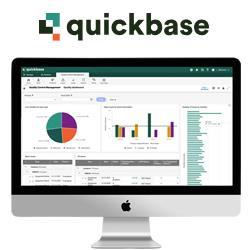With the advent of "home area networks" which allow consumers to be able to see what they are using in real time and make adjustments and decisions accordingly, this data could potentially be used by third parties to assist the consumer with those decisions. It will be important for that information to have privacy provisions built in so that third parties cannot access the data for purposes that have not been authorized by the consumer.
Katherine Hamilton | GridWise Alliance
What consumer data do electric utilities currently collect?
With the typical analog meter, electricity providers collect basic overall consumer usage information from the meter which feeds into their billing system.
Why does the utility collect this data?
The utility is required to give reliable service to consumers. With usage data, the utility can track times of peak demand and ensure that enough supply is available during those times. The electricity provider bills consumers for their usage; that data serves to calculate those bills.
How will data collection differ with smart grid?
With smart meters, much of the same usage data will be collected, but rather than on a monthly meter read, it will come much more frequently. The utility will know in real time what consumers are using and be able to operate the system more reliably and efficiently. In addition, with smart meters utilities can collect voltage data that helps the utility provide cleaner, more consistent power. The utility will also be able to tell automatically if one or more consumers are without power and detect remotely if a meter has been tampered with and theft is occurring.
Who will have access to this data?
While it is generally recognized that consumers own their own usage data, this data is currently accessed by the electricity provider or their billing contractor.
Why should data privacy be important to the electric utility customer?
With the advent of “home area networks” which allow consumers to be able to see what they are using in real time and make adjustments and decisions accordingly, this data could potentially be used by third parties to assist the consumer with those decisions. It will be important for that information to have privacy provisions built in so that third parties cannot access the data for purposes that have not been authorized by the consumer.
How vulnerable will the data be to hackers?
Both vendors and utilities are embedding security as the smart grid is deployed. If security is built into the system upfront, there will be points of encryption along every portion of the grid—at the meter, the transformer, the substation, etc. While any system is not completely invulnerable, with increased visibility to the system, the utility will be able to tell much more quickly when a breach has occurred and safeguard other portions of the grid.
Is there to be a regulator to ensure the content and security of this data?
State regulators have been vigilant about consumer privacy issues while recognizing that the electricity provider has to have access to this data to serve the consumer and maintain the safe and balanced operation of the grid. There have been discussions about having a data privacy certification program similar to the Privacy by Design program in Ontario, Canada as we move forward in deploying the smart grid.
What should we do now to protect consumer data in a smart grid?
If any legislation is passed that allows consumer access, those same provisions need to safeguard consumer privacy while allowing the utility to have access to that data.
Are there other issues with security and vulnerability with the smart grid?
As the smart grid is deployed more ubiquitously and new technologies are installed, security will always need to be considered and upgraded to meet the needs of the system and the functionality of the equipment.
Katherine Hamilton President GridWise® Alliance
 Katherine Hamilton joined the GridWise Alliance in October of 2008 as its first full time President. In her tenure, Hamilton has watched the Alliance membership grow from 70 to over 100 members. In addition to new members, Hamilton has brokered numerous strategic alliances with key stakeholder groups. Hamilton has also been instrumental in spearheading the legislative and policy efforts of the Alliance in the past year including developing legislative language and providing testimony for Congress. In addition to her activities to promote the many different initiatives of the Alliance, Hamilton has participated in numerous conferences as a keynote speaker and on smart grid panels.
Katherine Hamilton joined the GridWise Alliance in October of 2008 as its first full time President. In her tenure, Hamilton has watched the Alliance membership grow from 70 to over 100 members. In addition to new members, Hamilton has brokered numerous strategic alliances with key stakeholder groups. Hamilton has also been instrumental in spearheading the legislative and policy efforts of the Alliance in the past year including developing legislative language and providing testimony for Congress. In addition to her activities to promote the many different initiatives of the Alliance, Hamilton has participated in numerous conferences as a keynote speaker and on smart grid panels.
Prior to joining the GridWise Alliance, Hamilton was policy advisor for Good Energies, Inc., a private investment company with a current portfolio in clean energy technologies of more than $6 Billion. In addition, Hamilton co-directed the American Bioenergy Association, where she worked with entrepreneurs, universities and utilities in developing biomass technologies. As the President of her own company, The Hamilton Group, she worked with the Union of Concerned Scientists, Natural Resources Defense Council, Midwest Research Institute and other organizations to lobby Congress and statehouses on various clean energy policies and funding. Hamilton also worked for the National Renewable Energy Laboratory (NREL) where she created several programs including federal energy audit and water conservation. Hamilton also served as NREL’s Manager of Government Relations in Washington, DC, becoming an expert witness on renewable energy for the House Committee on Science and serving as an advisor to Vice President Cheney’s Task Force in developing the national energy plan. Hamilton apprenticed as a distribution engineer for Virginia Power (now Dominion Energy) and was a senior analyst in commercial energy efficiency.
Hamilton has degrees from Cornell University and the University of Paris, Sorbonne.
The content & opinions in this article are the author’s and do not necessarily represent the views of AltEnergyMag
Comments (0)
This post does not have any comments. Be the first to leave a comment below.
Featured Product


